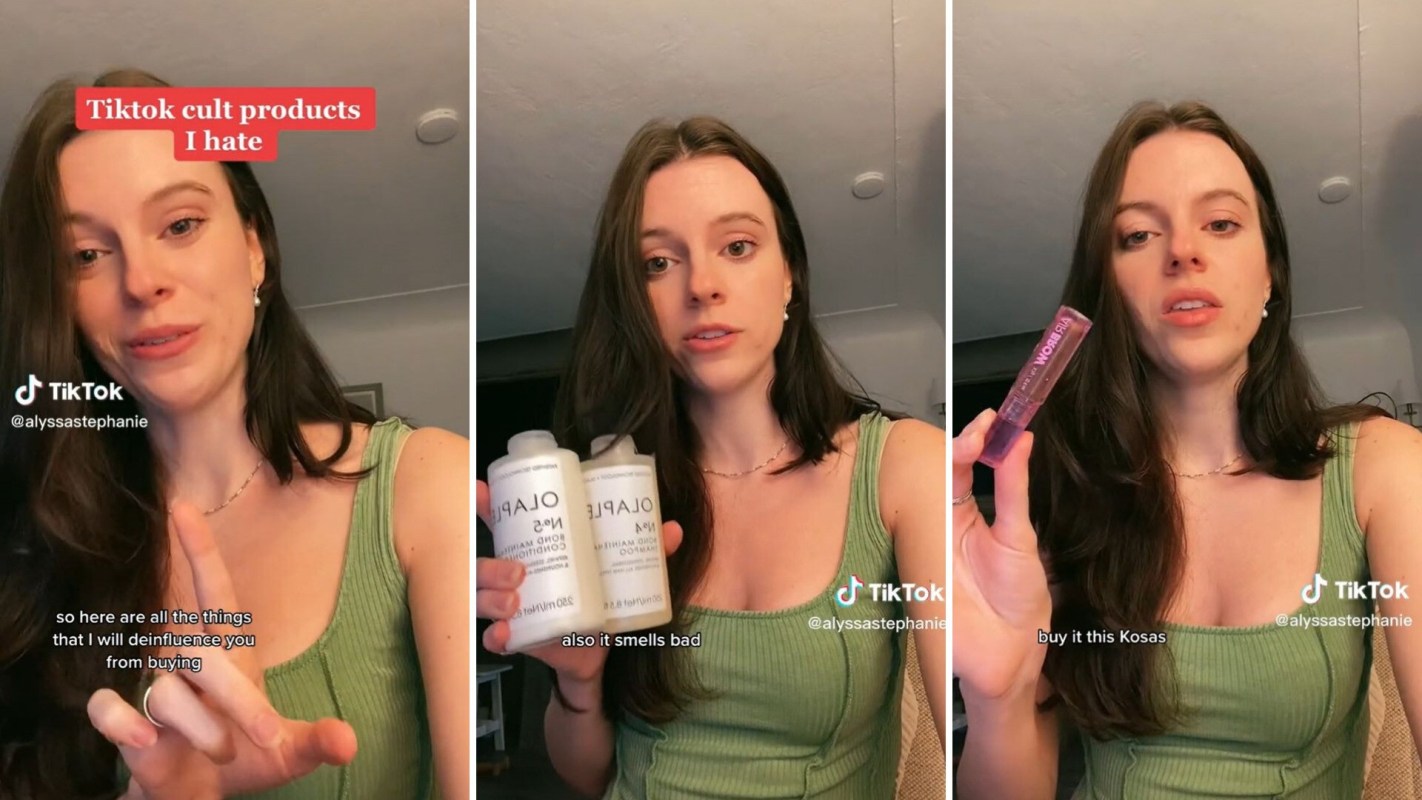According to the Influencer Marketing Hub, the influencer industry hit $16.4 billion last year. Companies across a wide range of industries are paying popular, attractive social media stars to promote their products.
Now, a new trend called "de-influencing" is trying to challenge this model.
What is de-influencing?
De-influencing content on TikTok and Instagram often looks similar to the all-familiar influencer videos that promote expensive products.
However, instead of prompting viewers to buy the latest beauty product or online service, de-influencing videos ask the viewer to spend less. Some posters point out how unnecessary influencers' sponsored products are and push back against excessive consumption, while others recommend simpler and cheaper alternatives.
@alyssastephanie I love deinfluencing ❤️ #deinfluencing #deinfluencergang #cultproduct ♬ original sound - Alyssa ✨
What's behind de-influencing?
Some influencers make content about dramatic results they achieved by using sponsored products — but the results aren't always realistic. For example, Business Insider reports that beauty influencer Mikayla Nogueira has been criticized for allegedly wearing false eyelashes in a video promoting L'Oreal mascara.
According to Marketing Dive, more than a quarter of all social media users — and about half of all Gen Z users — have bought a product based on an influencer's recommendation.
"I feel like for a long time, it's been all about kind of showcasing this, like, lavish lifestyle, something perfect, something maybe, like, a little bit out of reach or unattainable," content creator Josie Bullard told Today. "I just feel like people are starting to crave something a little bit more real, authentic, and relatable."
Besides saving money on products that don't perform as advertised, de-influencing can also push back on consumerism, the tendency for people to buy more and more unneeded products.
Not only is this overspending bad for individual budgets, but it's also bad for the planet, as companies use more and more raw materials to manufacture goods to sell and more discarded items end up in landfills. De-influencing could be one step toward people buying less and wasting less.
Why is de-influencing controversial?
While stopping waste and overspending is a worthwhile goal, some critics of the de-influencing movement don't see it heading in that direction.
"Hot take," says one video from TikToker Kahlea (@kahleanicolee), "de-influencing is still influencing."
The TikToker points out that many people who claim to be against this type of promotion still end up promoting other products that earn them money.
Or, as Twitter user Budget Girl (@gobudgetgirl) puts it: "It's not 'de-influencing' if you've got affiliate links on... cough. TikTok. Cough."
It's not "de-influencing" if you've got affiliate links on... cough. tiktok. cough.
— Budget Girl (@gobudgetgirl) January 31, 2023
Join our free newsletter for easy tips to save more, waste less, and help yourself while helping the planet.









